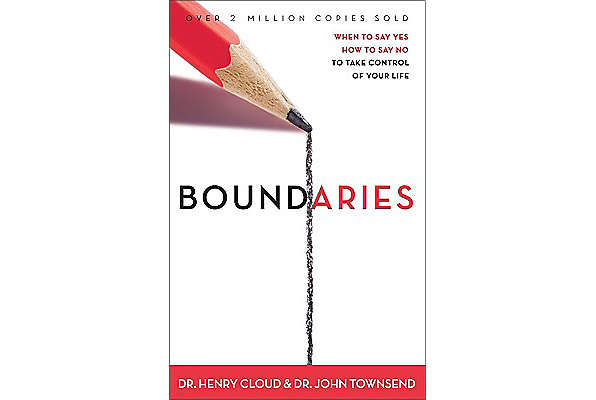There are 302 pages in the book Boundaries by Dr Henry Cloud and Dr. John Townsend. There must be well over that many great applications of their topic in the book, which tackles the tricky line between what you should be responsible for in life vs. what someone else might need to handle.
These “boundaries” confound us and change over the years and an annual re-reading of this book would be wise for everyone.
Property “boundaries” represent the line between properties; the fence around your yard, for instance.
Emotional “boundaries”, however, are the line between you and me; where I distinctly exist and you distinctly exist. In a relationship, boundaries are the line between what you are responsible for and what someone else should handle.
For instance, when you are young, it’s your mother’s job to feed you. At some point, however, that “responsibility” becomes yours. The age at which this transition takes places differs for all families but it must take place for the child to be a responsible, healthy adult.
Everyone laughs at an adult who is being fed by their parent. Yet, does everyone laugh when a teenager is caught drinking and their parent goes into the principal’s office to request leniency? Who’s responsibility is it to handle that situation?
Clarification of this concept defines the health of adult relationships.
Townsend and Cloud argue on Page 31 that “Knowing what I am to own and take responsibility for gives me freedom. If I know where my yard begins and ends, I am free to do with it what I like. Taking responsibility for my life opens up many different options. However, if I do not “own” my life, my choices and options become very limited.”
Here is a sampling of the great stuff included:
- The most basic boundary-setting word is “no.” People with poor boundaries struggle to say “no.”
- If you love and respect people who say “no” to you, they will love and respect when you say “no.”
- We often make decisions due to fear, and many times, it’s the fear that someone will not like you if you answer NO or will not know what to do if you answer NO.
- When parents teach children that saying NO is bad, they are teaching them that others can do what they wish with them. To feel safe in the world, children must be able to use the word NO and to learn to use the word NO.
- Adults who fail to use the word NO often become “compliants.” Compliants never state their opinion or speak up for themselves, and they can be taken advantage of and end up in abusive or unhealthy relationships.
- “Avoidants” say NO to good things, such as to help when they might need it. They hold fiercely to their lack of need. This can escalate into an unhealthy place of impermeable boundaries, lack of willingness to relate to others on a deeper level and an unhealthy belief in their personal capability.
- “Controllers” don’t respect other’s limits and think that their needs trump all other’s needs.
- “Non-responsives” either are so self-absorbed as to miss the needs of others or so judgmental as to not value the needs of others.
How healthy are your Boundaries???

